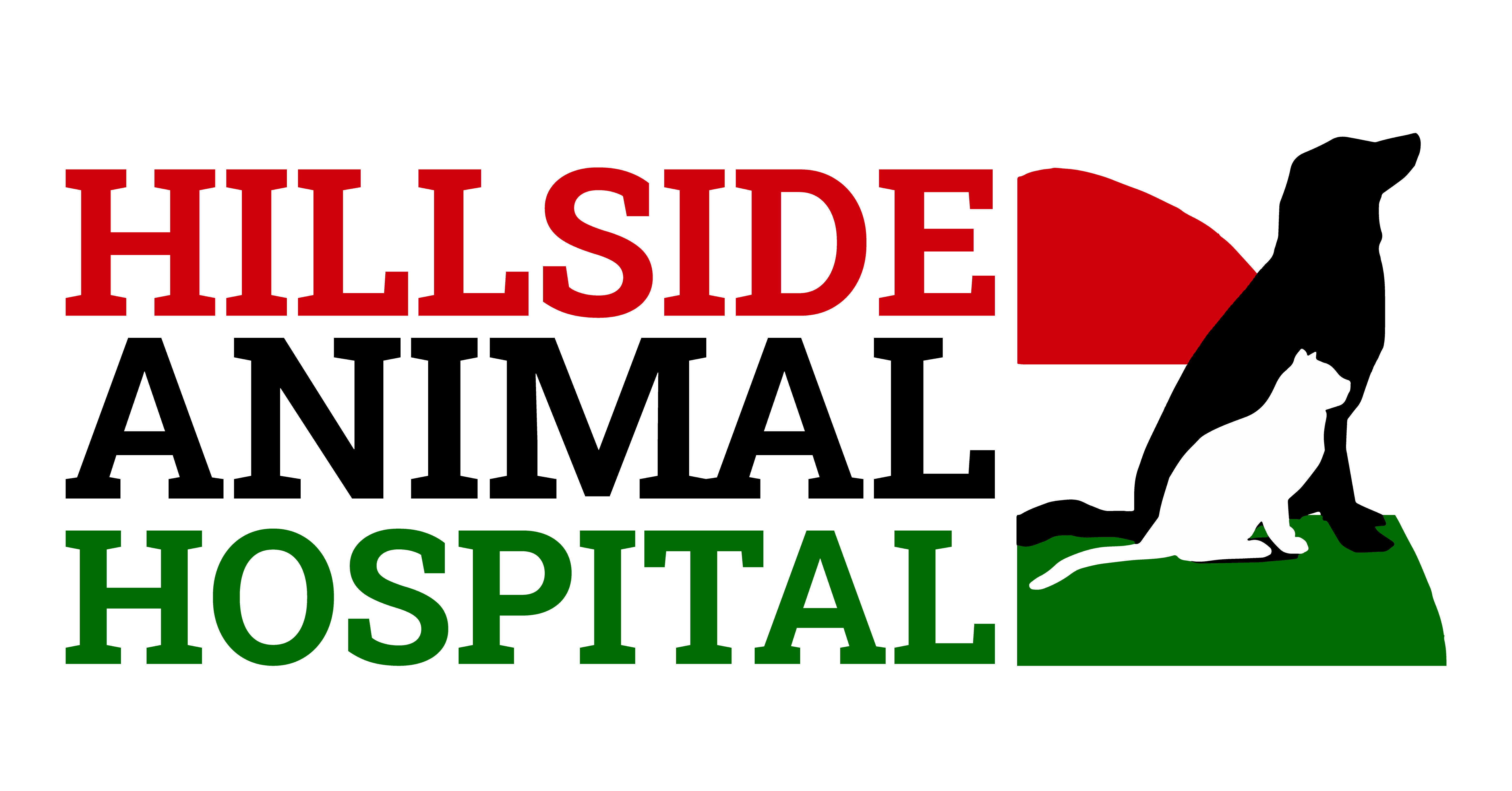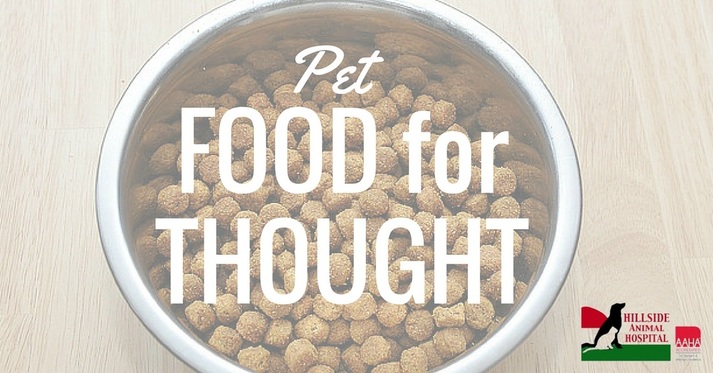(Pet) Food for Thought
–Matt, Hillside Animal Hospital RVT
Choosing the right pet food for your pet can be a daunting task. You are expected to make an informed decision on a diet that is healthy, palatable, and cost-effective for your pet. All of this while trying to balance your already busy schedule. “Which brand should I buy?” “Is canned or dry food better?” “What ingredients should even be in the food?” All of these are common questions that pet owners have to ask themselves. Hopefully, we can answer these questions and any other questions you may have!
Emotional vs. Educational Decisions
As a consumer and a pet owner you should be wary of any statements that try to elicit an emotional response. Pet food companies are in the business to sell food (obviously), and they will use advertising slogans to trigger an emotional response. These are often ingredient-focused claims such as “Chicken as the first ingredient,” “Real Beef,” or “Grain-Free.” Pet owners often see the quality in ingredients because they are tangible. You can picture “Beef” with ease, but “Beef Meal” can conjure some rather strange images to owners. Also, we are told certain foods, such as grains, can be “bad” in our diets, so why not our furry friends?
A much better way to judge is based more on nutrition and safety. This will be making an educated decision instead of one based on emotion. Foods that fall in this category will have an AAFCO seal and be either formulated or will have gone through a feeding trial. A formulated diet will meet certain requirements established by AAFCO (Association of American Feed Control Officials) such as, but not limited to percent protein, carbohydrates, and fat. A diet that has gone through a feeding trial has met these requirements AND has been fed to animals that they are intended for. This is considered the “gold standard” of diets because it has been proven safe for animals to eat. As an owner, you should also look into a company’s practices. You want to know if there is a veterinary nutritionist on staff, how the food is processed and stored, and what research has been done on the food. All of this information could be found by calling the company’s customer support located on the food container.
Homemade Diets: A Recipe for Success or Disaster?
Some pet owners may feel more comfortable feeding their pets a homemade diet. As a society, we equate food with love and a way to share memories. Why not spread this love to our pets as well! Homemade diets can be a viable option as long as certain precautions are taken. If you choose to prepare your own diet for your pet, you should make sure that it is complete and balanced. This can be done by using an online nutrition site or meeting with a veterinary nutritionist. Sites such as BalanceIt.com can be used to both provide supplements and use the online diet generator to form your own diet. This generator is as simple as plugging in a protein, carbohydrate, fat, vegetable, and/our fruit choice and then following the quantity listed on the site. This method works great as long as there is no “diet drift” Diet drift is when owners start to substitute the original ingredients for similar ones (ie: chicken for turkey or barley for rice ). This changes the nutrient profile as well as calories and can unbalance the food. It is best to make a new diet on the generator if you wish to change ingredients. Owners can also meet with a veterinary nutritionist to create a custom diet. The nutritionist will meet with owners and discuss what ingredients to use and their quantity as well as what supplements to add to the diet to keep them balanced. This generally is the best option since there will be follow-up visits to ensure that the animals are tolerating the diets and changes can be made to avoid nutrient deficiencies. If a diet is not balanced it can cause nutrient deficiencies and can start to affect your pet’s health. If you have any questions you should always consult your veterinarian.
So, What Do We Recommend?
At Hillside Animal Hospital we recommend that our clients choose an over-the-counter diet that is produced by a larger, well-known company such as Purina, Hills, Iams, and Eukanuba. These are companies that employ veterinarians/veterinary nutritionists, perform quality research, and will often put diets through a feeding trial. They also will diminish their reputation if there is a problem with any of their diets. Customer service with these companies will also be easier for pet owners to use, and they often have staff trained to answer any questions that owners may have. Of course, if you have any other questions you should always consult your veterinarian or veterinary staff.

